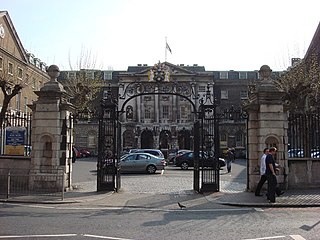 W
WA Civil Harassment Restraining Order (CHO) is a form of restraining order or order of protection used in the state of California. It is a legal intervention in which a person who is deemed to be harassing, threatening or stalking another person is ordered to stop, with the goal of reducing risk of further threat or harm to the person being harassed. Some restraining orders are limited to domestic partners, but the CHO is not. It is frequently used with the purpose of preventing harassment by co-workers, neighbours, strangers and acquaintances.
 W
WA Domestic Abuse Restraining Order (DARO) is a form of restraining order or order of protection used under the domestic abuse laws of the state of Wisconsin and enforceable nationwide under invocation of the Full Faith and Credit Clause in the Violence Against Women Act. It is a legal intervention in which one person who is deemed to be hurting, threatening or stalking another person is ordered to stop—and often cease all direct and indirect contact—with the goal of reducing risk of further threat or harm to the petitioner. The petitioner and respondent will generally be in certain specific relationships such as a spousal or sexual relationship. If the petitioner is in an unwanted stalking relationship with the respondent, however, a closely related form of injunction, a Harassment Restraining Order (HRO) may be more appropriate.
 W
WThe Internet of Garbage is a 2015 non-fiction book by journalist and lawyer Sarah Jeong. It discusses online harassment as a threat to the useful functions of the internet, and argues for new approaches to managing the issue. The book was reissued in 2018 with a new preface by Jeong.
 W
WMajrowski v Guy's and St Thomas' NHS Trust [2006] UKHL 34 is a UK labour law case holding that an employer will be vicariously liable for the harassment of an employee by another.
 W
WThe Protection from Harassment Act (POHA) is a statute of the Parliament of Singapore that criminalises harassment, stalking, and other anti-social behaviour. The law is designed specifically to make acts of cyberbullying and online harassment a criminal offence.
 W
WThe Protection from Harassment Act 1997 is an Act of the Parliament of the United Kingdom. On introducing the Bill's second reading in the House of Lords, the Lord Chancellor, Lord Mackay of Clashfern, said, "The aim of this Bill is to protect the victims of harassment. It will protect all such victims whatever the source of the harassment—so-called stalking behaviour, racial harassment, or anti-social behaviour by neighbours." Home Office guidance on the Act says "The legislation was always intended to tackle stalking, but the offences were drafted to tackle any form of persistent conduct which causes another person alarm or distress."
 W
WSexual harassment is a type of harassment involving the use of explicit or implicit sexual overtones, including the unwelcome and inappropriate promise of rewards in exchange for sexual favors. Sexual harassment includes a range of actions from verbal transgressions to sexual abuse or assault. Harassment can occur in many different social settings such as the workplace, the home, school, churches, etc. Harassers or victims may be of any sex or gender.